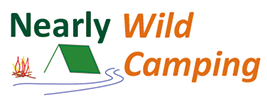If you think camping is just for summer, think again! With over 100 Nearly Wild Camping locations mostly across the UK, you can embrace the great outdoors all year round, including the quieter and more peaceful winter months.
Winter camping offers a very different – and often more rewarding – experience. Imagine waking up to crisp morning air, a light frost glistening on the grass, and total tranquillity all around you. The off-season months mean fewer people, so you can enjoy a deeper connection with nature, uninterrupted by crowds or noise. It’s the perfect time to explore, recharge, and rediscover the simple joys of being outdoors.
Staying warm is all part of the adventure. Snuggling up by a crackling campfire, sharing stories under a clear, starlit sky, or sipping hot chocolate while wrapped in a cosy blanket – these are winter camping memories that last a lifetime. With the right gear and preparation, it’s surprisingly comfortable, too. Many Nearly Wild Camping locations offer natural windbreaks like woodlands and valleys, making them ideal for cooler conditions.
Another great benefit? Wildlife! Winter often reveals different sides of nature. You might spot deer, owls, or foxes that you’d rarely notice in busier seasons. And for photographers, the soft, diffused winter light makes every landscape look magical.
Whether you’re a seasoned camper or just starting out, Nearly Wild Camping gives you the freedom to camp in beautiful, off-the-beaten-track locations that keep their doors open year-round. So why not try something new this season? Swap the sofa for a sleeping bag, the TV for a starry sky, and discover the unique magic of winter camping with Nearly Wild Camping.
Adventure doesn’t have to hibernate — neither should you!
There’s something magical about sleeping under the stars with your family, surrounded by nature’s symphony of rustling leaves and distant wildlife. Wild camping offers an escape from the digital world and a chance to reconnect with both nature and each other. However, finding legal and safe spots for wild camping in the UK can be challenging – which is where the Nearly Wild Camping directory becomes an invaluable resource for adventurous families.
Nearly Wild Camping bridges the gap between traditional campsites and true wild camping. Their carefully curated directory features locations across the UK where landowners welcome campers for a small fee, typically ranging from just a few pounds per person per night. These aren’t your typical campsites with rows of caravans and electric hookups. Instead, they’re authentic wild spaces – meadows, woodlands, and hillsides – where families can pitch their tent and experience genuine outdoor adventure while respecting private land and supporting local communities.
Imagine arriving at a secluded meadow in the Shropshire or a peaceful woodland clearing in Wales. Your children’s eyes light up as they realize there are no designated pitches, no crowds, and no rules about where exactly to set up camp. This freedom is empowering for kids and adults alike. They learn to assess the landscape, choose level ground, and consider wind direction – practical skills that build confidence and outdoor competence.
The small fee you pay goes directly to the landowner, creating a sustainable model that encourages more landowners to open their spaces to responsible campers. It’s a win-win situation: families gain access to stunning locations, and landowners receive fair compensation for sharing their property.
Nearly Wild Camping experiences offer families unique opportunities for bonding. Without the distractions of facilities and entertainment, you’re free to create your own adventures. Spend the day exploring nearby trails, teaching children to identify plants and animal tracks, or simply playing games in the open air. As evening falls, gather around your campfire (where permitted), toast marshmallows, and share stories under a canopy of stars that’s impossible to see from urban areas.
These experiences teach children valuable lessons about environmental stewardship, self-reliance, and the importance of leaving no trace. They learn that adventure doesn’t require expensive theme parks or exotic destinations—it’s available right here in the UK’s beautiful countryside.
The Nearly Wild Camping directory makes planning your adventure straightforward. Browse locations by region, read descriptions and reviews from other families, and book your spot. Most locations offer basic facilities like composting toilets, but the emphasis is on simplicity and minimal impact.
Start with a single night if you’re new to wild camping, and choose a location close to home. Pack appropriately, bring weather-suitable gear, and prepare your children for a different kind of camping experience. The reward? Memories that will last a lifetime and a family tradition that grows richer with each adventure.
Wild camping with Nearly Wild Camping isn’t just about where you sleep – it’s about rediscovering the simple joy of being together in nature.
Wilder Winter camping in the UK strips the outdoors back to a quieter, more elemental experience. Frosted mornings, long starlit nights and an absence of summer crowds make it uniquely rewarding, but the season also demands respect: shorter daylight hours, colder temperatures and unpredictable weather change the rules of simple overnight trips into a serious, safety-first outing.
Planning and location
Choose locations with shelter and escape routes in mind. Lower valleys, sheltered copses and ridges with leeward pitches reduce wind exposure. Where access rules differ across the UK, always check local guidance and, where required, seek landowner permission. Aim for shorter approaches so you avoid hauling heavy loads over long distances in cold conditions.

Essential kit
Prioritise warmth and shelter. A robust three or four-season tent, an insulated sleeping mat with high R-value and a sleeping bag rated for temperatures lower than you expect are non-negotiable. Layering clothing is key: base, insulating and waterproof outer layers allow quick adjustment as you move between effort and rest. Carry spare gloves, socks and a warm hat stored separately to avoid dampness. A reliable stove and fuel suited to cold weather, plus a wind shield and sturdy cookware make hot food and drinks possible even in freezing conditions.
Campcraft and safety
Site carefully: avoid hollows where cold air pools and places exposed to avalanche risk in upland, snowy terrain. Pitch on durable surfaces to limit environmental impact and stabilise your tent with extra guy lines and buried anchors if needed. Manage condensation by ventilating the tent while minimising heat loss; keep wet kit outside in a waterproof bag. Stay fuel-aware and practice stove use outside the tent to avoid carbon monoxide risk.

Carry navigation tools and plan for limited daylight. Tell someone your route and expected return time and carry spare batteries and a power bank. In snowy or icy terrain, add micro-spikes and an ice axe or crampons as appropriate and know how to use them.
Leave no trace and mindset
Winter amplifies both the landscape’s beauty and its fragility. Pack out all waste, avoid disturbing wildlife, and keep noise and light to a minimum. Accept slower travel and simpler plans: wilder winter camping rewards patience and careful preparation more than pushing limits.
A well-prepared wilder winter camp delivers solitude, clarity and a deeper connection to place. With the right equipment, sensible planning and respect for weather and land, it can be one of the most memorable ways to experience the UK outdoors.

Elevate Your Outdoor Culinary Adventures with Quality Gear and Inspiring Ideas…
If you’re passionate about cooking in the great outdoors, Campfire Cookshop is a must-visit destination for all your alfresco culinary needs. Established with the aim of bringing together the best products and resources for outdoor cooking, Campfire Cookshop offers everything from robust cast iron cookware to innovative camp stoves, making it easier than ever to create delicious meals wherever your adventures take you.
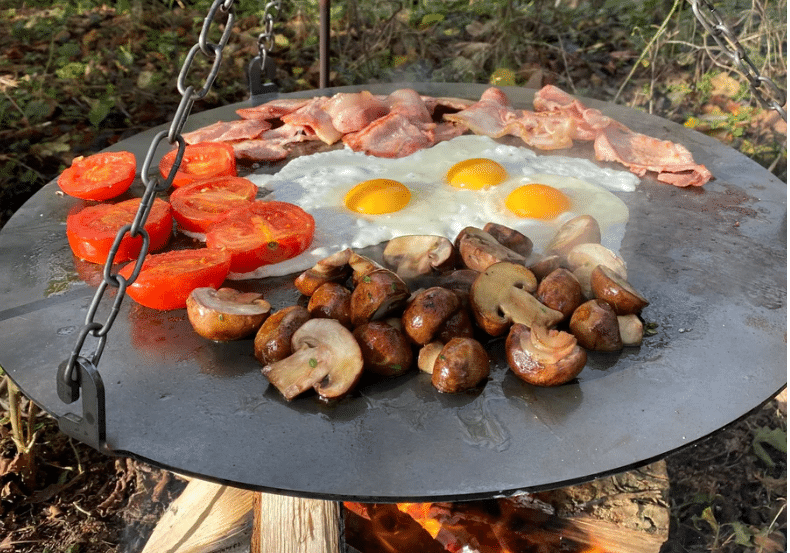
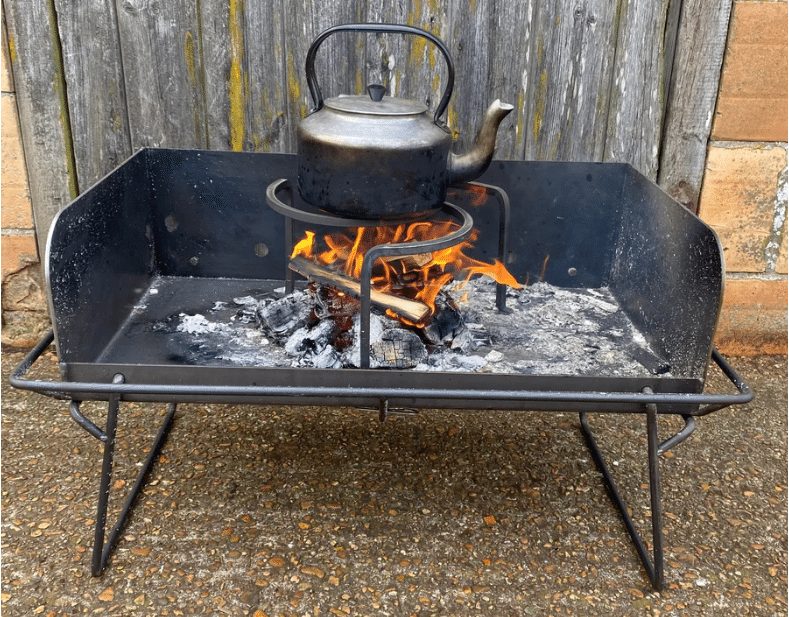
Campfire Cookshop’s website is a treasure trove of inspiration for both seasoned outdoor chefs and those just getting started. Their curated selection includes skillets, fire pits, grills, and a host of clever accessories designed to make cooking outside as enjoyable and convenient as possible. Whether you’re planning a family camping trip or a solo bushcraft overnighter, you’ll find equipment to suit every scenario and budget.
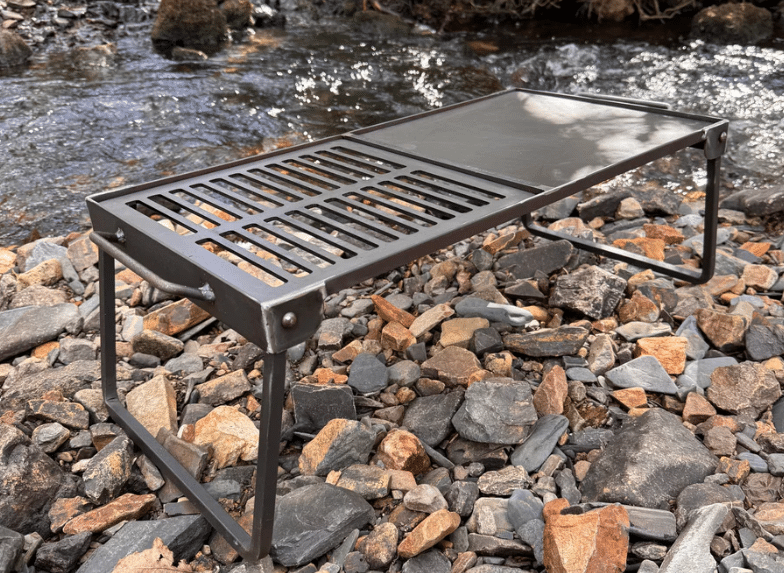
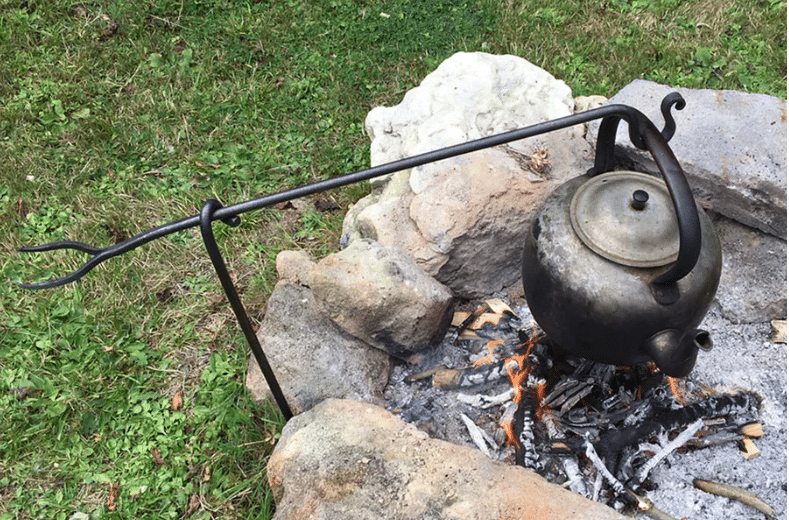
Whether you’re a bushcraft enthusiast or simply enjoy a fireside meal under the stars, Campfire Cookshop is your companion for making every outdoor meal memorable. Visit their website and ignite your passion for campfire cooking today! www.campfirecookshop.com
As an organisation we set out to support primarily ‘bring your own’ tent camping but quickly realised there was a demand for campervan and hammock-suitable wilder locations. In more recent years we have been approached by a lot more hybrid types of camping setups. Traditional campsites can be a bit snobbish and refuse these as they don’t fit a standard category.

One of the main reasons we don’t support motorhomes or caravans in general is that quite a few of the wilder locations have access issues – narrow lanes, sharp bends, soft undulating land, low hanging trees etc. So what we suggest is that the number of locations suitable for hybrid setups will be limited to what the landowner sees as suitable for their location – just ask when booking. If the directory listing states that you have to park 100m away from the camping area and wheelbarrow your kit to your pitch then that location is probably not a suitable location.

On the other hand if a location accepts campervans they are much more likely to accept a micro-caravan, trailer pod or similar – just confirm when booking. Amongst the setups some of our members have include roof tents, motorbikes, trailer tents, larger campervans and car campers.


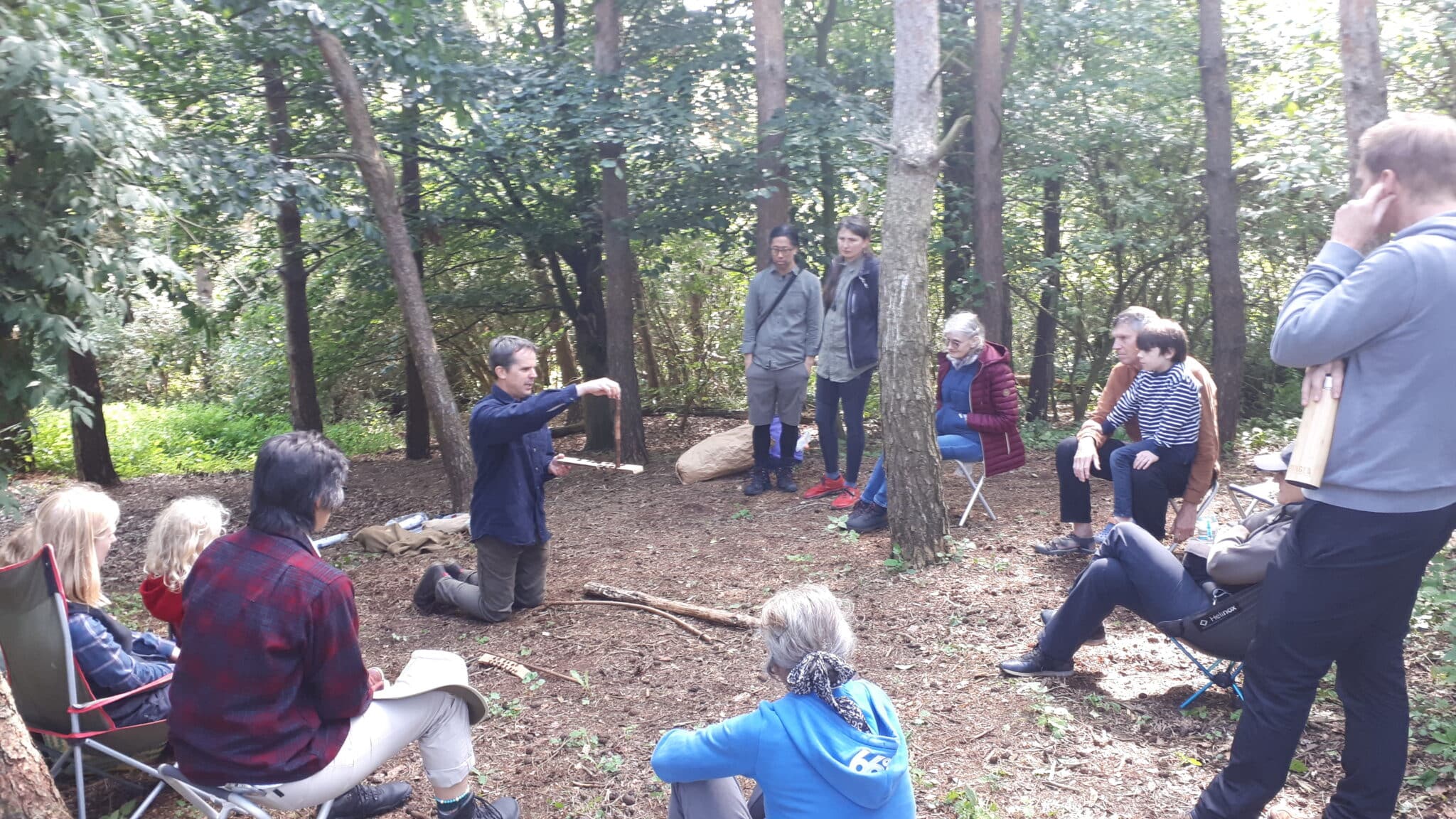
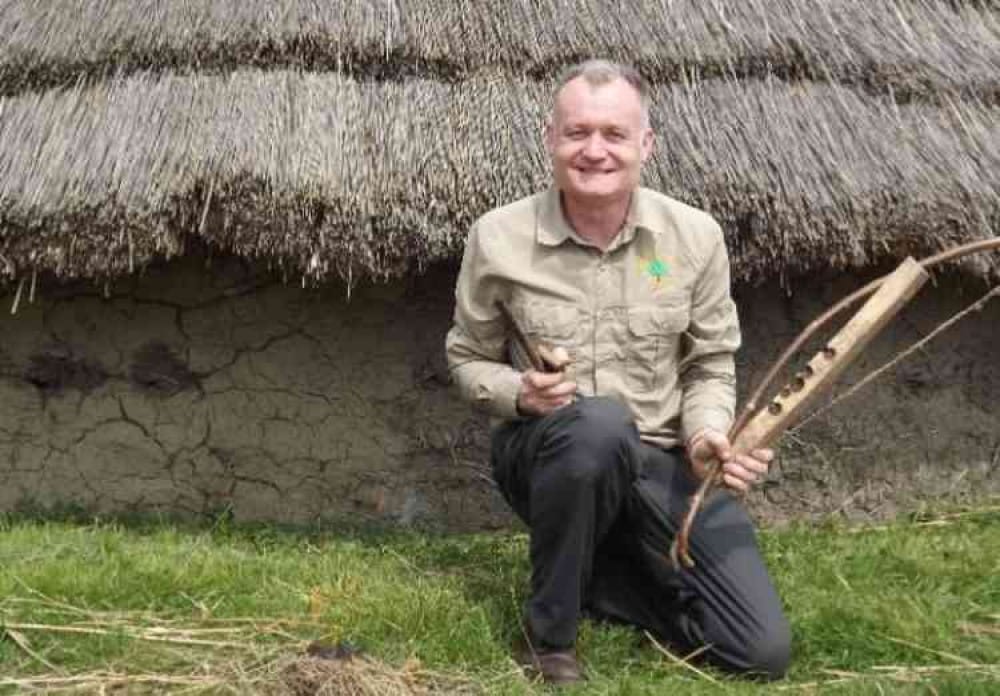
Plus we are still confirming details with:
Booking information to come soon, note these camps are members-only. But they offer so much value – it’s worth becoming a member just to get involved!
Full details are listed on the members Community page. For non-members please visit: www.nearlywildcamping.org

Before discussing the benefits of joining the Nearly Wild Camping Club, it’s important to note that camping, in general, can offer a range of physical and mental health benefits. Spending time in nature has been shown to reduce stress and anxiety, improve mood, and increase overall wellbeing. Additionally, camping provides an opportunity for physical activity such as hiking and swimming.
Now, when it comes to the Nearly Wild Camping Club, there are many benefits to consider. First and foremost, this club allows campers to experience nature in a more authentic and immersive way. Rather than staying at a crowded campsite with full amenities, Nearly Wild Camping facilitates camping in more remote and natural settings. This can offer a greater sense of peace and solitude, as well as a chance to connect more deeply with the environment.

Another benefit of joining the Nearly Wild Camping Club is the opportunity to learn new skills and knowledge related to outdoor living. The club offers workshops and educational resources on topics such as bushcraft, wilderness survival, and sustainable living practices. This can be not only personally enriching but also empowering in terms of feeling more confident and capable in the outdoors.
In addition, Nearly Wild Camping prioritizes environmental responsibility and sustainability. The club operates in a way that minimizes harm to the natural areas where they camp, and they encourage others to do the same. This makes membership a worthwhile investment for those who value protecting and preserving the environment

Off grid camping is a type of camping where you are not connected to any utilities like water or electricity. This means that you will need to bring all of your own supplies with you and be prepared to camp in a more rustic setting. While this may sound like a lot of work, off grid camping can actually be a very rewarding experience. Here are a few things to keep in mind if you’re interested in trying it out.
Conclusion:
If you’re looking for a new camping adventure, why not try off grid camping? It’s a great way to disconnect from technology and appreciate the natural world around us. Just remember to be prepared and practice Leave No Trace principles so that everyone can enjoy the outdoors for years to come.

Taking a solo camping trip can be an exhilarating and rewarding experience. The fresh air, the natural beauty, and the feeling of independence can be a perfect escape from the hustle and bustle of everyday life. If you’ve never been wild camping before, though, it can be intimidating to take that first step into the unknown. Here are some tips to help make your first solo wild camping experience in the UK a safe and enjoyable one:

Pack Wisely
The key to successful wild camping is packing wisely. It’s important to bring everything you need – including food and water – and not overpack. Be sure to bring a good sleeping bag and mat so you’ll stay warm on chilly nights; if you plan on pitching a tent, make sure you bring all necessary poles, pegs, and other equipment too. Also consider bringing a gas stove so you can cook meals while out in nature. A small charge bank is also useful for keeping your phone charged while you’re away from home.
Speak with others who have wild camped alone and survived to tell the tale! Fear of the unknown can be quite off-putting – but don’t let it get to you. The UK is one of the safest parts of the world when it comes to wildlife encounters, almost everything will be scared of you. You may hear some twigs snap in the night but you will be lucky to see what caused it.
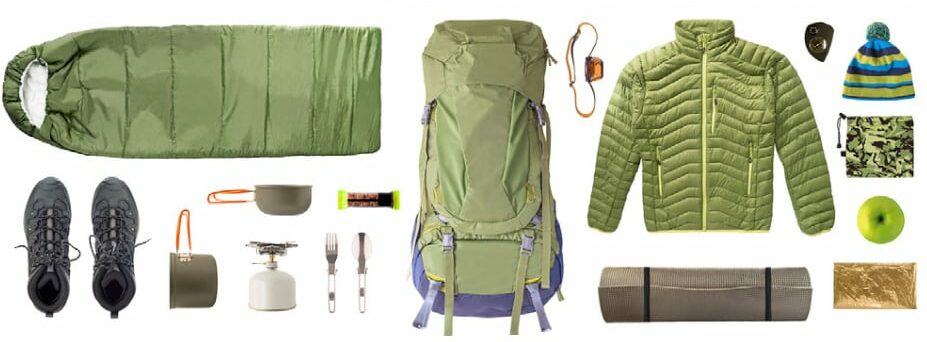
Be Aware of Your Surroundings
When planning your trip, do some research about where you’re going and what kind of terrain to expect. Are there any unusual animals or plants in the area? Are there any potential hazards like cliffs or uneven ground that could cause injury? Knowing what dangers exist can help keep you safe during your journey. A detailed Ordnance Survey map can be really useful for this. Additionally, always tell someone where you will be going before heading out on your adventure – this way if something goes wrong, someone will know how and where to find you quickly.
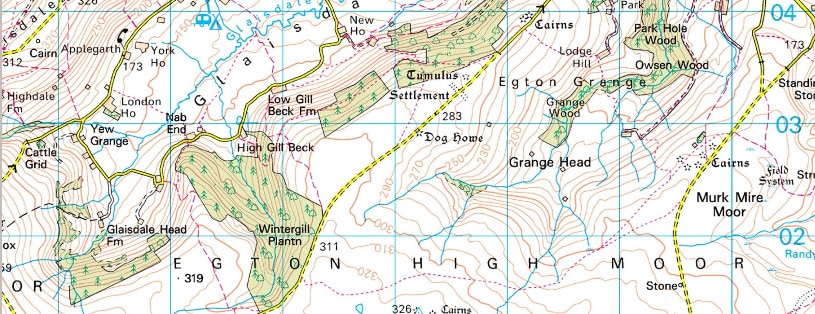
Bring a First Aid Kit
No matter where you go or what activity you are doing, it is always wise to bring along a well-stocked first aid kit just in case anything happens while out in nature. Include items such as bandages, antiseptic ointment, painkillers and antihistamines – these should cover most minor injuries that may occur while camping outdoors alone. Additionally, it may be wise to learn basic wilderness first aid so that you know how to handle more severe emergencies should they arise while out in nature.

Conclusion: With these tips under your belt, it’s time for adventure! If this is your first time wild camping alone in the UK remember to stay aware of your surroundings at all times, pack wisely for any contingencies that may arise during your trip and bring along a well-stocked first aid kit just in case something does go wrong! With preparation and mindfulness of safety protocols set up before embarking upon an adventure such as this one – great memories await! So get ready for an incredible experience…
Base Camp Food is an independent UK based business, offering the best range of freeze dried, dehydrated and ready to eat expedition and camping meals. Stocking the widest range of lightweight expedition meals in the UK, all with free delivery on all orders. You won’t find a better choice of freeze dried meals and expedition food.

Base Camp Food stock meals from the leading brands from across Europe including LYO Expedition Foods, Summit to Eat, Expedition Foods, BeWell, Bla Band, Real Turmat, Wayfayrer, TentMeals, Forestia and Extreme Adventure Food. There is a huge range of lightweight expedition breakfasts, main meals and snacks to choose from. They have a significant Vegan range of meals across various brands.

To complement the freeze dried meals and ready to eat meals, they have a fantastic range of lightweight cookware, stoves and utensils, including stoves from Optimus and titanium cookware from Evernew. Other well stocked popular brands include MSR, Jetboil, Solo Stove, JetBoil, SOTO and Vargo.
Base Camp Food supply Duke of Edinburgh Expeditions with DofE recommended ready to eat meals from Wayfayrer.

‘We have years of experience and expertise supporting expeditions across the globe and offer impartial, expert help for all adventures. We have a hand picked range of equipment including stoves, cookware, hydration solutions and tents.’ – Base Camp Food. Visit the website www.basecampfood.com
[ Members log-in to the NWC website to view discounts codes from Base Camp Food and other Business Partners ]
Complete the form to receive our newsletter (approx 1 per month) to follow how Nearly Wild Camping develops.
You can unsubscribe at any time. Phone number is for text updates.
"*" indicates required fields
We use cookies to enhance your browsing experience, serve personalized content, and analyze our traffic. By clicking "Accept All", you consent to our use of cookies.
We use cookies to improve your experience on our site. You can choose which types of cookies to allow below.
Essential cookies for website functionality and security.
Help us understand how visitors interact with our website to improve performance.
Used to deliver personalized advertisements and track campaign effectiveness.
